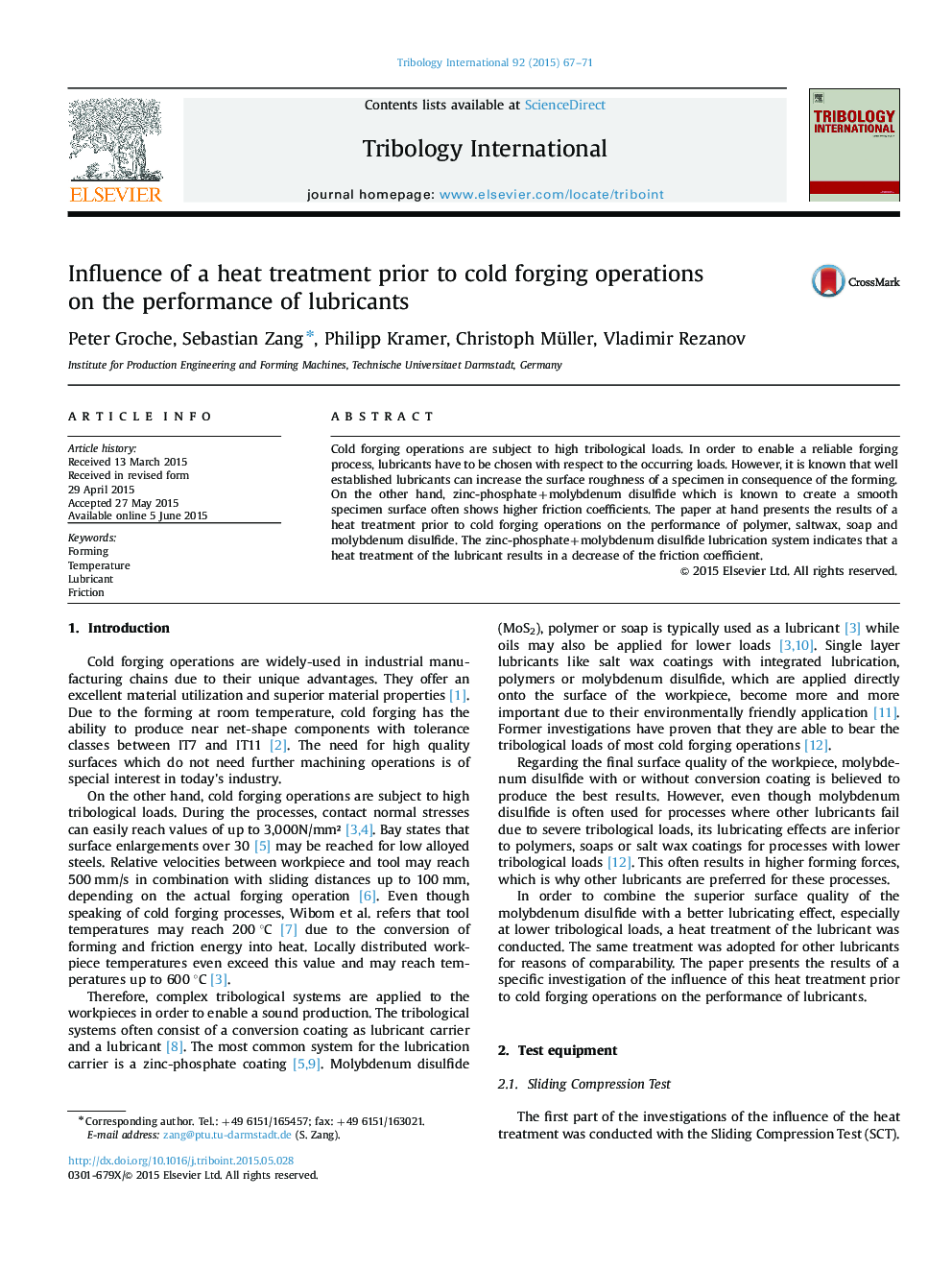| Article ID | Journal | Published Year | Pages | File Type |
|---|---|---|---|---|
| 614427 | Tribology International | 2015 | 5 Pages |
•We examine the influence of a heat treatment on the performance of lubricants.•We use a specialized tribometer and a rod extrusion process for the investigation.•The performance of MoS2 as lubricant can be improved after a heat treatment.•The friction coefficient decreases with increasing temperatures and treatment times.
Cold forging operations are subject to high tribological loads. In order to enable a reliable forging process, lubricants have to be chosen with respect to the occurring loads. However, it is known that well established lubricants can increase the surface roughness of a specimen in consequence of the forming. On the other hand, zinc-phosphate+molybdenum disulfide which is known to create a smooth specimen surface often shows higher friction coefficients. The paper at hand presents the results of a heat treatment prior to cold forging operations on the performance of polymer, saltwax, soap and molybdenum disulfide. The zinc-phosphate+molybdenum disulfide lubrication system indicates that a heat treatment of the lubricant results in a decrease of the friction coefficient.
